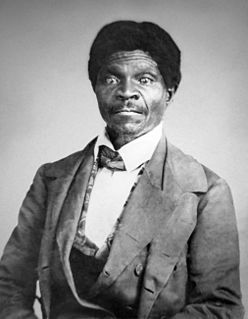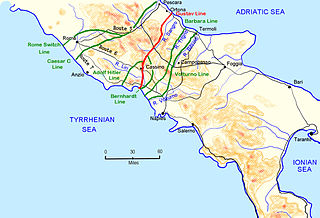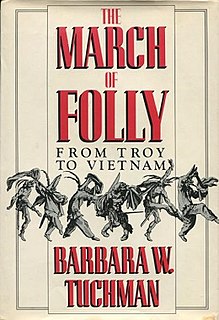
Miracleman, originally known as Marvelman, is a fictional superhero appearing in comic books first published by L. Miller & Son, Ltd. Created in 1954 by writer-artist Mick Anglo for publisher L. Miller & Son as a United Kingdom home-grown substitute for the American character Captain Marvel, the original series ran until 1963. It was revived in 1982 in a dark, post-modern reboot by writer Alan Moore, with later contributions by Neil Gaiman.

Dred Scott was an enslaved African-American man who, along with his wife, Harriet, unsuccessfully sued for freedom for themselves and their two daughters in the Dred Scott v. Sandford case of 1857, popularly known as the "Dred Scott decision". The case centered on Dred and Harriet Scott and their children, Eliza and Lizzie. The Scotts claimed that they should be granted their freedom because Dred had lived in Illinois and the Wisconsin Territory for four years, where slavery was illegal, and laws in those jurisdictions said that slaveholders gave up their rights to slaves if they stayed for an extended period.

The Winter Line was a series of German and Italian military fortifications in Italy, constructed during World War II by Organisation Todt and commanded by Albert Kesselring. The series of three lines was designed to defend a western section of Italy, focused around the town of Monte Cassino, through which ran the important Highway 6 which led uninterrupted to Rome. The primary Gustav Line ran across Italy from just north of where the Garigliano River flows into the Tyrrhenian Sea in the west, through the Apennine Mountains to the mouth of the Sangro River on the Adriatic coast in the east. The two subsidiary lines, the Bernhardt Line and the Hitler Line ran much shorter distances from the Tyrrehnian sea to just North East of Cassino where they would merge into the Gustav Line. Relative to the Gustav Line, the Hitler Line stood to the North-West and the Bernhardt Line to the South-East of the primary defenses.

The Olive Branch Petition was adopted by the Second Continental Congress on July 5, 1775, and signed on July 8 in a final attempt to avoid war between Great Britain and the Thirteen Colonies in America. The Congress had already authorized the invasion of Canada more than a week earlier, but the petition affirmed American loyalty to Great Britain and entreated King George III to prevent further conflict. It was followed by the July 6 Declaration of the Causes and Necessity of Taking Up Arms, however, which made its success unlikely in London. In August 1775, the colonies were formally declared to be in rebellion by the Proclamation of Rebellion, and the petition was rejected by the British government; King George had refused to read it before declaring the colonists traitors.

Icons of Evolution is a book by Jonathan Wells, an advocate of the pseudoscientific intelligent design argument for the existence of God and fellow of the Discovery Institute, in which Wells criticizes the paradigm of evolution by attacking how it is taught. The book includes a 2002 video companion. In 2000, Wells summarized the book's contents in an article in the American Spectator. Several of the scientists whose work is sourced in the book have written rebuttals to Wells, stating that they were quoted out of context, that their work has been misrepresented, or that it does not imply Wells's conclusions.

Angel is a fictional character created by Joss Whedon and David Greenwalt for the American television programs Buffy the Vampire Slayer and its spin-off series Angel. The character is portrayed by actor David Boreanaz. As introduced in Buffy in 1997, Angel is a love interest for heroine Buffy Summers, a young woman whose destiny as "the Slayer" is to fight the forces of evil, such as vampires and demons. However, their relationship is complicated by the fact that Angel is himself a vampire cursed with remorse and a human soul, which motivates him to assist Buffy in her duties as Slayer. The character's popularity led to the production of the spin-off Angel, which follows the character's struggle towards redemption after moving to Los Angeles. In addition to the two television series, the character appears in the comic book continuations of both series, as well as much other expanded universe literature.

The Killer Angels is a 1974 historical novel by Michael Shaara that was awarded the Pulitzer Prize for Fiction in 1975. The book depicts the three days of the Battle of Gettysburg during the American Civil War, and the days leading up to it: June 29, 1863, as the troops of both the Union and the Confederacy move into battle around the town of Gettysburg, Pennsylvania, and July 1, July 2, and July 3, when the battle was fought. The story is character-driven and told from the perspective of various historical figures from both the Confederacy and the Union. A film adaptation of the novel, titled Gettysburg, was released in 1993.
Since the advent of the cyberpunk genre, a number of derivatives of cyberpunk have become recognized in their own right as distinct subgenres in speculative fiction, especially in science fiction.

Yoshihiro Tatsumi was a Japanese manga artist whose work was first published in his teens, and continued through the rest of his life. He is widely credited with starting the gekiga style of alternative manga in Japan, having allegedly coined the term in 1957. His work frequently illustrated the darker elements of life.

During the American Civil War, Missouri was a hotly contested border state populated by both Union and Confederate sympathizers. It sent armies, generals, and supplies to both sides, was represented with a star on both flags, maintained dual governments, and endured a bloody neighbor-against-neighbor intrastate war within the larger national war.

The Transformers is a comic book line by IDW Publishing based upon Hasbro's Transformers characters and toy line, featuring many writers and artists across multiple series. It is notable for being the longest continuously running Transformers continuity to date, beginning in October 2005 with The Transformers: Infiltration and ending in November 2018, after the six-issue Unicron event comic. The following year, it would be rebooted and succeeded by a new comic book series on 2019.
Fredrick Barthelme is an American novelist and short story writer, well-known as one of the seminal writers of minimalist fiction. Alongside his personal publishing history, his position as Director of The Center For Writers at The University of Southern Mississippi and editor of the nationally prominent literary journal Mississippi Review have placed him at the forefront of the contemporary American literary scene. He is currently the editor of New World Writing

"Sinestro Corps War" is an American comic book crossover event published by DC Comics in its Green Lantern and Green Lantern Corps titles. Written by Geoff Johns and Dave Gibbons and drawn by Ivan Reis, Patrick Gleason, and Ethan Van Sciver, the 11-part saga was originally published between June and December 2007. In addition to the main storyline, four supplemental "Tales of the Sinestro Corps" one-shot specials and a Blue Beetle tie-in issue were concurrently released.

Don Sakers was an American science fiction writer and fan who lived in Maryland, and wrote several novels and edited a short story collection. In 2009 he succeeded Thomas Easton as book reviewer for Analog Science Fiction and Fact magazine. Sakers is probably best known in the science fiction community as a frequent guest speaker at science fiction conventions.
Sarah Tarrant was a nurse. She is remembered for her bravery in challenging the British soldiers who occupied Salem during military actions prior to the American Revolutionary War.
Alan Axelrod is a prolific author of history, business and management books. As of October 2018, he had written more than 150 books. Axelrod resides in Atlanta, Georgia.

The Iliad is one of two major ancient Greek epic poems attributed to Homer. It is one of the oldest extant works of literature still widely read by modern audiences. As with the Odyssey, the poem is divided into 24 books and contains 15,693 lines in its most widely accepted version, and was written in dactylic hexameter. Set towards the end of the Trojan War, a ten-year siege of the city of Troy by a coalition of Mycenaean Greek states, the poem depicts significant events in the siege's final weeks. In particular, it depicts a fierce quarrel between King Agamemnon and a celebrated warrior, Achilles. It is a central part of the Epic Cycle. The Iliad is often regarded as the first substantial piece of European literature.

In Search of the Trojan War is a six-part BBC TV documentary series written and presented by Michael Wood, first broadcast in 1985 on BBC2. It examines the extent to which historical and archeological evidence matches the tale of the Trojan War as recounted by Homer in The Iliad.
The Aeneid has been analyzed by scholars of several different generations and schools of thought to try to determine the political commentary that Virgil had hoped to portray. The major schools of thought include the overarching idea that Virgil had written a story that parallels Roman history at the time it was written as well as messages both in support of and against the rule of Augustus Caesar. Finally, it has been argued that Virgil had a stance on geopolitics which he conveys in the actions of Aeneas and his crew.

The March of Folly: From Troy to Vietnam is a book by Barbara W. Tuchman, an American historian and author. It was published on March 19, 1984, by Knopf in New York.














